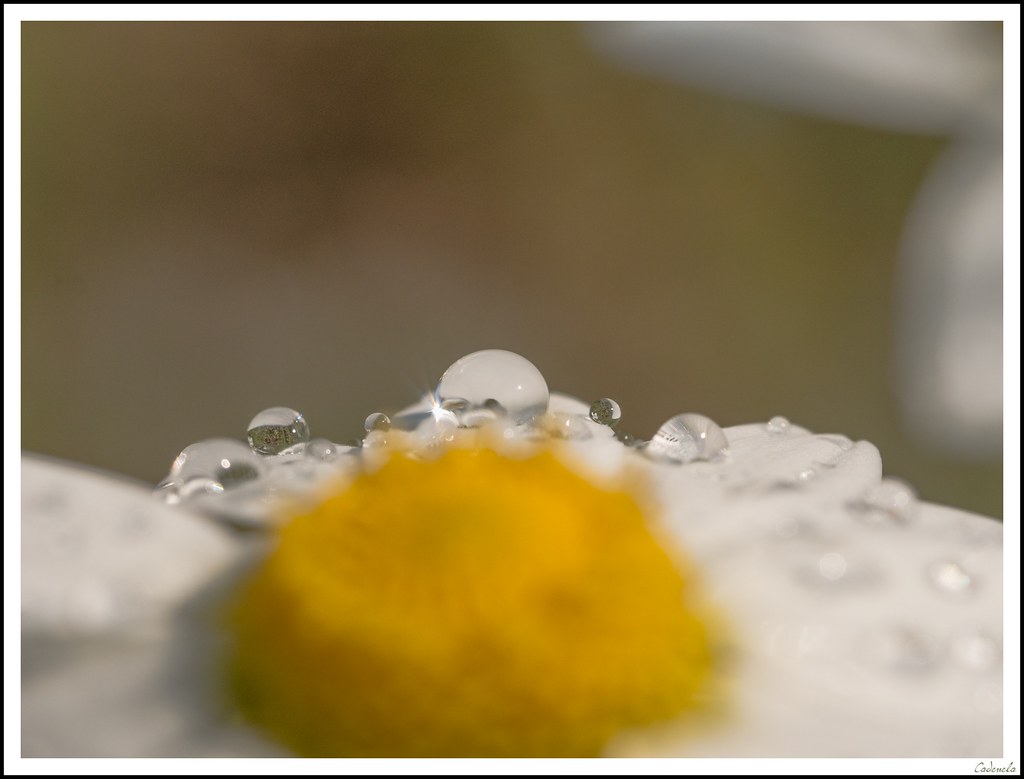Actually, just one of the busa varieties: the busa femmina di Dignano, or female busa. Big, rounded and meaty, this olive variety is native from our very town of Dignano.
Her tree is like the oil she produces: benign, not much wild, and somewhat delicate. Anyway, I think it may be better to leave aside the agricultural details and pass on to what you might find more interesting: her oil.
It does not exceed in bitterness, spiciness or flavors, nor does it have an electric green colour like some of its peers, but is a perfect match for any kind of delicate dishes. It does not impone itself on the tastes, but rather accompany them and enhance them in a diminutive, understated way. In few words, if you need the double bass of the olive oils, with the busa you can't go wrong!
Tuesday, 20 October 2015
Friday, 22 May 2015
Your olive tree, bespoke!
Here at Cadenela, we care for every single olive tree, and we have the evidence to prove it!
Take a look at the short video we made for one of our friends during pruning time:
Join us for more updates!
Take a look at the short video we made for one of our friends during pruning time:
Join us for more updates!
Saturday, 11 April 2015
Olives need a haircut too!
Been missing us? Sorry but at the moment we're in "all hands on deck mode" as it's pruning season! Take a look at the short video we made (actually worth one hour of pruning) to get an idea of how's life in Cadenela orchards right now...
Pruning is probably the most labour intensive activity (or at least on harvest level) and is necessary to have a healthy and productive orchard. Oh, and the trees look better after a haircut too :-)
Pruning is probably the most labour intensive activity (or at least on harvest level) and is necessary to have a healthy and productive orchard. Oh, and the trees look better after a haircut too :-)
Thursday, 29 January 2015
Art, kids & Cadenela olive oil
One may find the combination of art and agriculture somewhat strange, but food has always found its place in art, either on canvas or in other unedible forms. Remember highschool art lessons, and renaissance's Giuseppe Arcimboldo?
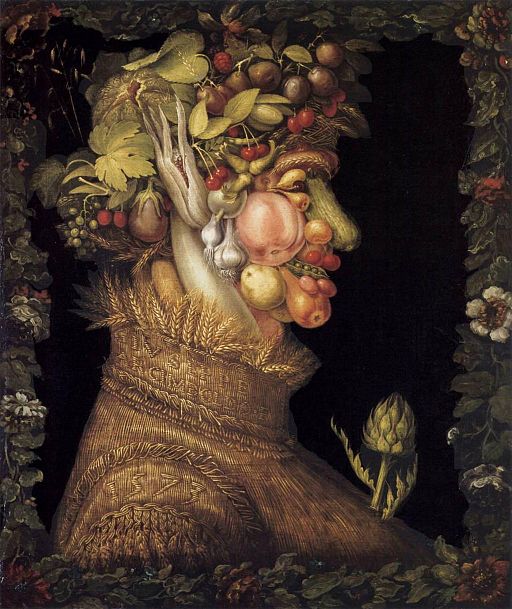
There are many more, both contemporary and distant in time that have found inspiration in food, one way or the other. Now, you may wonder why this introduction in our, mostly down-to-earth (quite literally) blog: because the olive tree, and its oil, inspires us. It takes one back to basic beauty, to natural harmony, to higher connections the olive oil has always bridged for humans.
Enter Valter Černeka and his art. Primarily a sculptor, but otherwise an artist tout court, Valter pursues an impressive range of activities, not last working with children and developing the innate creativity of our younger ones. Since we both share a penchant for the olive tree, it came quite natural to embark on a project we are now proud to present you: the Cadenela organic olive oil, especially for our kids.
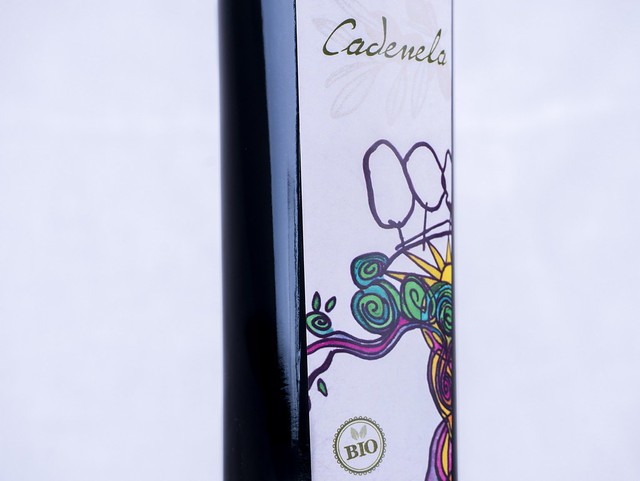
For kids you may ask? Yes, since the quest for high quality olive oil often leaves the youngest a bit wanting, due to the bitterness and spicy tastes we tend to associate with such products. Obviously with time kids begin to appreciate those qualities, but why not produce a top olive oil, just milder, and present it properly to them? That was the idea we developed and which has been visually translated, with the invaluable input and start idea by our 5 year old daughter Elena :-).

A limited batch of 100 bottles has been made this year, so hurry up and check here whether you can still grab one for your little ones!
Here's a slideshow of some details of Valter's and our work:

Enter Valter Černeka and his art. Primarily a sculptor, but otherwise an artist tout court, Valter pursues an impressive range of activities, not last working with children and developing the innate creativity of our younger ones. Since we both share a penchant for the olive tree, it came quite natural to embark on a project we are now proud to present you: the Cadenela organic olive oil, especially for our kids.

For kids you may ask? Yes, since the quest for high quality olive oil often leaves the youngest a bit wanting, due to the bitterness and spicy tastes we tend to associate with such products. Obviously with time kids begin to appreciate those qualities, but why not produce a top olive oil, just milder, and present it properly to them? That was the idea we developed and which has been visually translated, with the invaluable input and start idea by our 5 year old daughter Elena :-).

A limited batch of 100 bottles has been made this year, so hurry up and check here whether you can still grab one for your little ones!
Here's a slideshow of some details of Valter's and our work:
Thursday, 25 December 2014
Happy 2015!
Dear friends, another year is just around the corner and we're leaving 2014 behind, with all its good and bad events (detailed report coming soon!). We wish you all peace and health!
Monday, 16 June 2014
Olive orchards in the moonlight
Summer's here, and in full swing too. Since it was a full moon few days ago, I decided to take a late evening stroll in the orchards (it's quite warm already here in Istria!).
Passing from one orchard to the other, I was thinking about the people who used to work them in the past days, and how were the nights they would spend in the casitas (or kažuni) when late work, or bad weather, kept them in the fields overnight. A small digression here - the casita is a small stone building, usually integrated in the stone walls surrounding the fields of southern Istria (mainly). I suppose there are thousands of them in the area, as almost each field had one...
So, I tried to recreate a semblance of life in them, and these are some preliminary results:
I like to think that the olives enjoy some human company, and who knows, maybe the fields, and the stones themseves do too?
It was a nice stroll anyway, and I almost forgot, our olives are working hard on your next oil!
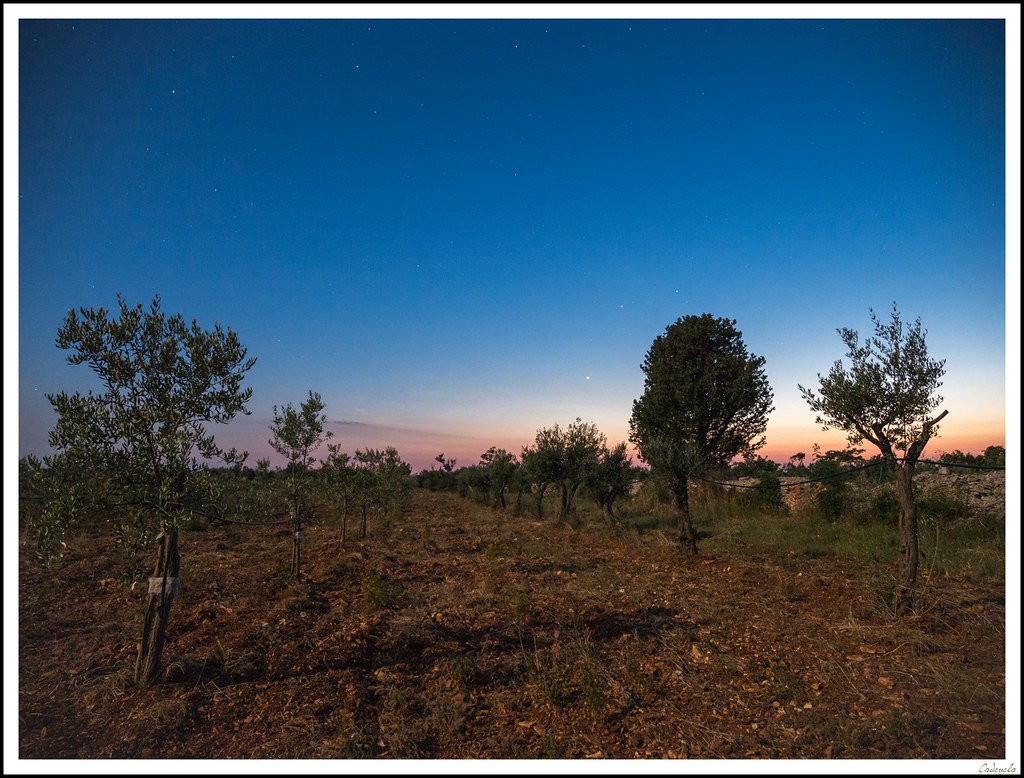 |
| Dusk in the olive grove near Dignano (Vodnjan) |
Passing from one orchard to the other, I was thinking about the people who used to work them in the past days, and how were the nights they would spend in the casitas (or kažuni) when late work, or bad weather, kept them in the fields overnight. A small digression here - the casita is a small stone building, usually integrated in the stone walls surrounding the fields of southern Istria (mainly). I suppose there are thousands of them in the area, as almost each field had one...
So, I tried to recreate a semblance of life in them, and these are some preliminary results:
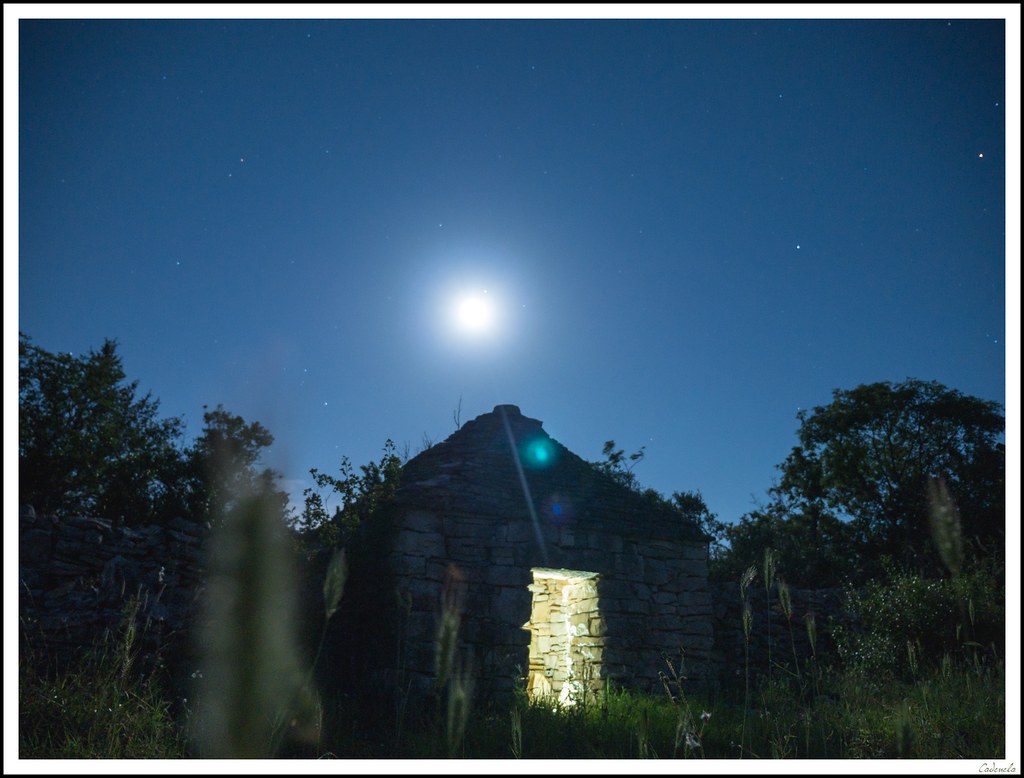 | |||||||||||
| A casita close to Peroj, in the moonlight |
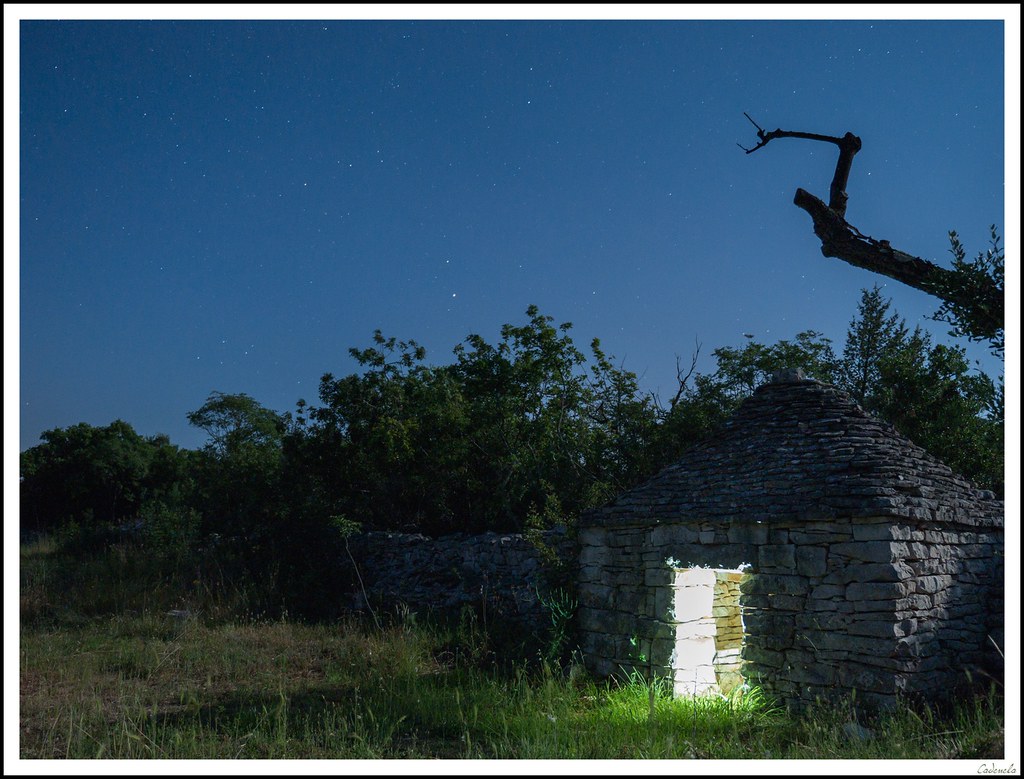 | |||||||
| Did it look like this, two hundred years ago? |
Monday, 5 May 2014
Subscribe to:
Comments (Atom)



